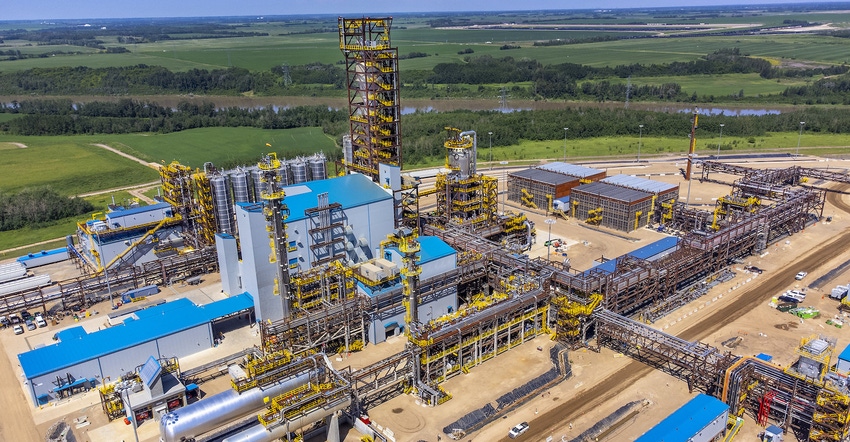July 7, 2022

North American propane dehydrogenation and polypropylene maker Heartland Polymers announced this week that it completed the commissioning of a new polypropylene (PP) plant at its Heartland Petrochemical Complex in Alberta.
“A safe commissioning of our polypropylene plant is a crucial step towards commercial production of Heartland Polymers,” Jim Madro, senior vice president of Petrochemicals for the company, said in a release Tuesday. “The PP plant has been producing pellets since late June with polymer grade propylene (PGP) from our storage cavern. The entire Heartland Complex remains on schedule for an integrated startup in the third quarter of this year, at which point Heartland will begin commercial production.”
The location will initially manufacture homopolymers before copolymer production is added in 2023. Heartland’s facility has a planned production capacity of 525,000 tn/yr of PP using PGP feedstock from its parent company, Inter Pipeline.
“We have rail connections to every major shipping hub in North America, storage-in-transit to expedite delivery times, real-time GPS shipment tracking, and our geographic location means we are less vulnerable to extreme weather incidents that can cause downtime,” said Yonas Kebede, director, Polypropylene Sales and Marketing for Heartland, in a statement. They added, “Additionally we have reliable access to one of the world’s largest sources of propane feedstock.”
Heartland’s complex will feature an on-site PDF plant and storage caverns.
About the Author(s)
You May Also Like



